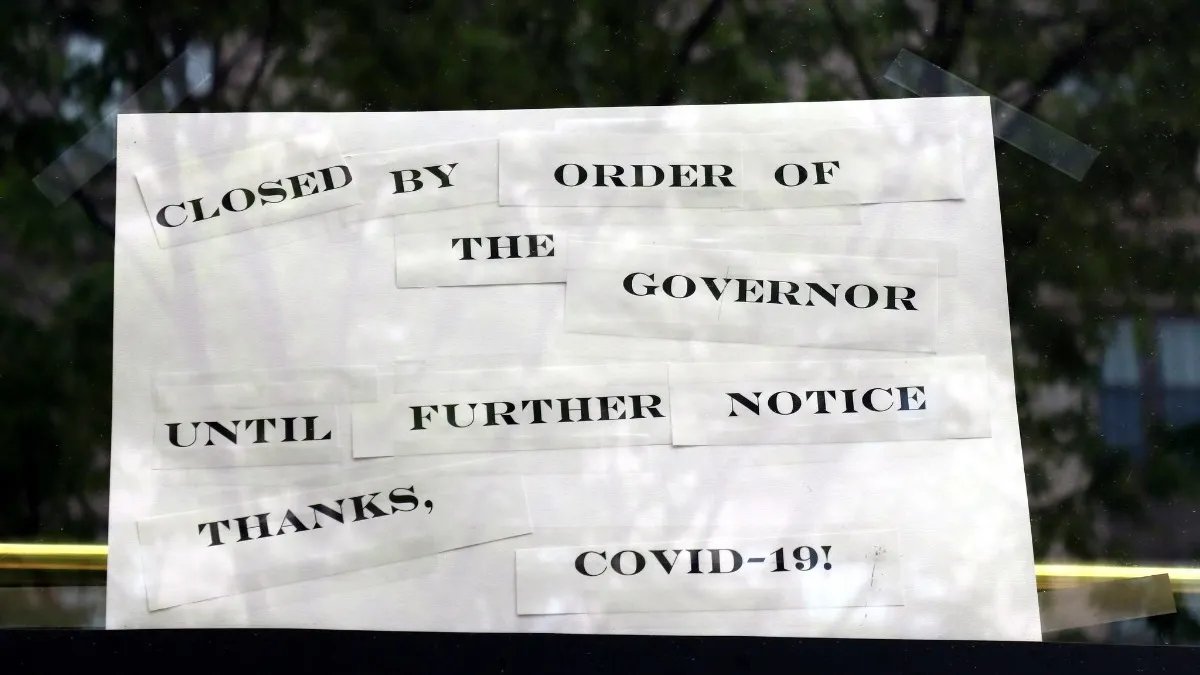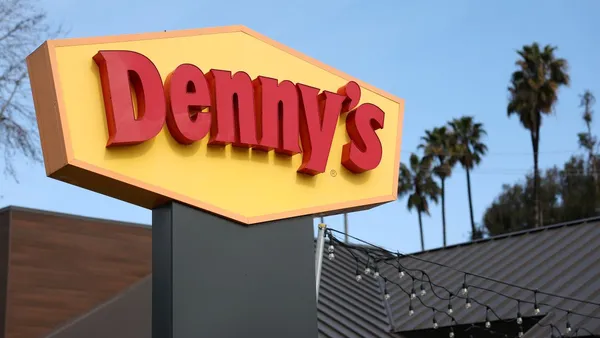UPDATE: July 13, 2020: California Gov. Gavin Newsom announced Monday on Twitter that all restaurants must close their dining rooms as novel coronavirus cases surge across the state. Restaurants can continue to serve diners outdoors, but bars, brewpubs and breweries must completely shut down. Newsom did not disclose how long this shutdown will last.
Dive Brief:
- Alameda County, California, which encompasses the cities of Oakland and Berkeley, ordered restaurants, bars and wineries on Friday to stop outdoor dining and revert to takeout, drive-thru and delivery only. The region had reopened outdoor dining less than a month ago, on June 19. Placer County, California, also ordered businesses to either close or stop indoor operations on Sunday.
- The policy change followed guidance issued by the California Department of Public Health on Thursday, which states restaurants should not allow sit-down dining, even if seating is outdoors. If a county wants to allow for sit-down dining, the municipality must submit a document to the DPH detailing infection rates, strategies for how to manage a rise in COVID-19 cases, and safety protocols for reopening restaurants, per the new guidance, according to Eater.
- Thirty-one counties are now on the State's County Monitoring List, representing 89% of the state's population, according to the Los Angeles Times. Alameda County was added to the list on Sunday while Placer County has been on the state's watch list for more than four days due to an uptick in COVID-19 cases. Counties on this list receive targeted support from the state and, after three consecutive days on the list, are subject to state-mandated restrictions and enforcement.
Dive Insight:
Novel coronavirus cases have been rising steadily in California. Newsom launched "strike teams" two weeks ago to bring businesses that aren't following COVID-19 safety protocols into compliance, specifically targeting bars and restaurants that are breaking ranks. These squads are made up of representatives from 10 state regulatory agencies, and work alongside county enforcement authorities to ensure businesses adhere to local guidance.
As of Sunday, California's COVID-19 cases rose by 6,504, totaling 325,915 confirmed cases and 7,053 deaths, according to the Los Angeles Times. Health officials also estimate the state's true COVID-19 cases count is much higher than current projections. The state's cases are also set to double roughly every 24 days, bad news for area restaurants who are fighting to maintain outdoor dining operations.
"Ultimately, I think it should just be on us as adults to make up your mind whether you want to go out or not, and then allow me as a business owner, the best chance to be able to make it and sustain income and my family's income," Eric Johnson, owner of The Chef's Table in Rocklin, California, told ABC.
Several other states and cities have rolled back restaurant operations amid COVID-19's spread, and the see-saw of reopening and reclosing in response to government mandates could be fatal for operators who were already on the brink of closure under relaxed dining policies. New Mexico also shut down indoor dining last week, and a medical advisor to Texas Gov. Greg Abbott has cautioned that if COVID-19 cases continue to climb in the state, it may need to institute another lockdown in the next few weeks.
Independent restaurants will be especially vulnerable to this disruption, which could undermine consumer confidence and leave them scrambling to sell off surplus supplies and reconfigure employee postings if sales plummet.
"California won't be the last state to reverse or delay the return of independent restaurants and bars, and that's exactly why Congress needs to pass a relief program for our industry," Caroline Styne, member of the Independent Restaurant Coalition Advisory Board and chef, partner of the Los Angeles-based Lucques Group, said in a statement emailed to Restaurant Dive. "Restaurants placing their first supply orders since March can't turn the delivery trucks around. These re-closings are creating more debt for businesses that were just beginning to find their footing after accumulating four months of unpaid bills. Outdoor dining isn't a long-term solution as not all independent restaurants have the ability or resources to seat customers outside."













